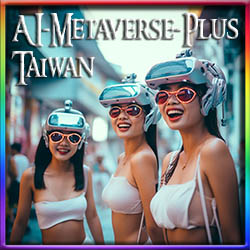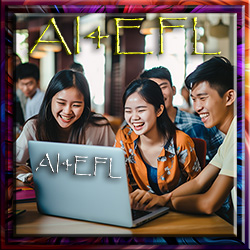
See that post for any special promotions on products mentioned.
How AI is Forcing Us to Rethink
Our Entire Economic System!
The Solution to Mass Unemployment:
Universal Thriving Income and Cybernetic Homeostasis!

The rapid development of artificial intelligence (AI) and large language models has the potential to revolutionize the way we live and work. However, this technological advancement also poses significant challenges, particularly with regard to employment. As AI and automation become more widespread, there is a growing concern about the displacement of human workers, leading to mass unemployment and the widening of socioeconomic disparities.
To address this issue, some scholars and policymakers have proposed the implementation of a Universal Thriving Income (UTI) or Rising Income through Cybernetic Homeostasis (RICH) system, which aims to provide a basic income to all citizens regardless of their employment status. UTI and RICH aim to provide financial stability to individuals and families while also promoting innovation and creativity by freeing individuals from the need to work in traditional jobs.
However, the implementation of UTI and RICH raises several ethical and practical questions, including concerns about fairness, autonomy, and privacy. Furthermore, the implementation of a UTI and RICH system will require significant political will and financial resources.
This essay will explore the relationship between UTI and RICH and the concept of a post-work society as AI and large language models become more widespread. It will examine the potential benefits and challenges of implementing these systems and explore the ethical considerations surrounding them. Ultimately, this essay argues that UTI and RICH can play a critical role in addressing the societal challenges posed by AI and automation, but that policymakers must carefully consider the practical and ethical implications of these systems to ensure that they are implemented in a fair and effective manner.
RICH Background
Redefining the Relationship between Work and Income

Rising Income through Cybernetic Homeostasis (RICH) is an economic system proposed by the late Robert Anton Wilson in his The Illuminati Papers. Wilson’s proposal for RICH was heavily influenced by cybernetics, the study of communication and control in complex systems, as well as his own experiences as a writer and researcher.
The basic premise of RICH is that individuals should be compensated for their contributions to society in a way that reflects the principles of cybernetic homeostasis, which refers to the idea that complex systems tend to seek a state of balance and equilibrium. In Wilson’s vision of RICH, individuals would be compensated not only for traditional forms of labor, such as working a 9-to-5 job, but also for their contributions to society in other forms, such as volunteering or creative endeavors.
One of the major ideas behind RICH is that the traditional concept of work, as we currently understand it, is becoming increasingly obsolete in the face of rapid technological change. Wilson believed that automation and artificial intelligence would eventually render many forms of traditional labor obsolete, leading to widespread unemployment and socio-economic instability. In order to prevent this scenario from unfolding, Wilson proposed that society needed to shift its focus away from traditional forms of labor and toward more creative, innovative, and socially valuable forms of activity.
Another major idea behind RICH is the principle of fairness and equality. Wilson believed that traditional economic systems were inherently unfair, favoring those who were already wealthy or who held positions of power and influence. In contrast, RICH would ensure that all individuals were compensated fairly for their contributions to society, regardless of their social status or background.
Overall, RICH is a bold and innovative proposal for an economic system that reflects the principles of cybernetics and seeks to create a more equitable and sustainable future. While Wilson’s ideas are certainly radical and may be difficult to implement in practice, they offer a promising vision for a post-work society in which all individuals are valued for their contributions to society and are able to live fulfilling, meaningful lives.
UTI vs UBI
The idea of Universal Thriving Income (UTI) represents another bold and innovative vision for an economic system that seeks to provide all individuals with the resources they need to live a truly thriving life. While Universal Basic Income (UBI) has become an increasingly popular concept in recent years, the goal of UTI goes beyond simply providing individuals with enough income to stay above the poverty line.
The concept of UTI is rooted in the idea that all individuals have the right to a decent standard of living and the opportunity to fulfill their potential, regardless of their social status or background. UTI would provide all individuals with a basic income that is sufficient not only to meet their basic needs, such as food and shelter, but also to enable them to pursue their goals and aspirations.
The vision of UTI is supported by a growing body of research that suggests that providing individuals with the resources they need to live a thriving life can have a range of positive impacts on both individuals and society as a whole. For example, studies have shown that individuals who have access to basic resources such as food, housing, and healthcare are more likely to be healthy, happy, and productive, which can have positive effects on their families, communities, and the economy.
Critics of UTI argue that providing individuals with a higher level of income could be too expensive and could lead to a decrease in productivity and motivation. However, supporters of UTI point to studies that suggest that providing individuals with a basic income can actually increase motivation and productivity by reducing stress and providing individuals with the resources they need to pursue their goals and aspirations.
In order to implement UTI, a range of policy and logistical challenges would need to be addressed, such as determining the appropriate level of income and developing mechanisms for distributing the income fairly and efficiently. However, with careful planning and implementation, UTI has the potential to provide a foundation for a more equitable and sustainable economic system that values the well-being of all members of society.
The Relationship between Universal Thriving Income and Rising Income through Cybernetic Homeostasis
Universal Thriving Income (UTI) and Rising Income through Cybernetic Homeostasis (RICH) are two interrelated concepts that aim to address the challenges posed by the widespread adoption of artificial intelligence and automation. While UTI provides a basic thriving income to all citizens, regardless of their employment status, RICH aims to create a system of economic equilibrium that ensures that workers are fairly compensated for their contributions to the economy.
The concept of UTI is based on the idea that all individuals should have access to a basic standard of living, regardless of their employment status. UTI provides a regular and reliable source of income to all individuals, regardless of whether they are employed, self-employed, or unemployed. This income can be used to cover basic needs such as food, housing, and healthcare, providing individuals and families with a basic level of economic stability.
RICH, on the other hand, aims to create a system of economic equilibrium that ensures that workers are fairly compensated for their contributions to the economy. RICH is based on the principle of cybernetic homeostasis, which refers to a state of balance and stability in a complex system. In the context of the economy, RICH aims to ensure that the distribution of income and resources is balanced and equitable, preventing the concentration of wealth in the hands of a few individuals or corporations.
The relationship between UTI and RICH is one of interdependence. UTI provides a basic income to all individuals, while RICH ensures that workers are fairly compensated for their contributions to the economy. Together, these two concepts can create a system of economic stability that promotes innovation and creativity while also providing a basic standard of living for all citizens.
However, the implementation of UTI and RICH is not without its challenges. The practical and financial implications of these systems must be carefully considered, and policymakers must also address ethical concerns surrounding issues such as privacy, autonomy, and fairness. Despite these challenges, the relationship between UTI and RICH offers a potential solution to the challenges posed by the widespread adoption of AI and automation, creating a more equitable and sustainable economic system for all citizens.
The Concept of a Post-Work Society
Moving beyond the Traditional Notion of Work
The concept of a post-work society is one that has gained increasing attention in recent years, particularly in the context of the challenges posed by the widespread adoption of AI and automation. A post-work society is one in which work as we know it today is no longer the primary means of generating income and providing a sense of purpose and meaning in life.
The idea of a post-work society challenges the traditional notion that work is central to human identity and well-being. Instead, it suggests that we need to reimagine the way we organize our economy and society to ensure that everyone has access to the resources and opportunities they need to thrive, regardless of their employment status.
One potential solution to the challenges posed by the shift to a post-work society is the implementation of a UTI or RICH system. By providing a basic income to all citizens, these systems can ensure that individuals and families have the financial stability they need to pursue their interests and passions, regardless of their employment status.
However, the shift to a post-work society also raises ethical and practical questions, such as how to ensure that everyone has access to meaningful and fulfilling activities, and how to ensure that the benefits of automation are shared fairly among all members of society. It also challenges traditional notions of productivity and the role of work in society.
Ultimately, the concept of a post-work society represents a radical departure from the status quo, and implementing such a vision will require significant political will and social change. However, it also offers the potential to create a more equitable and sustainable society, in which everyone has access to the resources and opportunities they need to thrive, regardless of their employment status.
Implementing Universal Thriving Income and Rising Income through Cybernetic Homeostasis
Designing a Fair and Sustainable Distribution System
Implementing Universal Thriving Income (UTI) and Rising Income through Cybernetic Homeostasis (RICH) is a complex and multifaceted process that requires careful consideration of both practical and ethical concerns. In order to implement these systems effectively, policymakers must consider a range of factors, including funding, implementation mechanisms, and potential ethical issues.
One of the most significant challenges in implementing UTI and RICH is funding. Providing a basic income to all citizens and ensuring that workers are fairly compensated for their contributions to the economy is a costly endeavor. Policymakers must identify sources of funding that are sustainable over the long term and that do not have negative impacts on other social programs or the broader economy.
Another challenge in implementing UTI and RICH is developing effective implementation mechanisms. These systems must be designed in such a way that they are accessible and easy to use for all citizens, regardless of their technological literacy or other barriers to access. Policymakers must also consider how to ensure that these systems do not perpetuate existing inequalities or create new ones.
Finally, policymakers must address a range of ethical issues related to UTI and RICH. These issues include concerns related to privacy, autonomy, and fairness. For example, implementing these systems may require collecting personal data from citizens, raising questions about how this data will be used and who will have access to it. Policymakers must also consider how to ensure that these systems do not disproportionately benefit certain groups or reinforce existing power dynamics.
Despite these challenges, UTI and RICH offer a promising solution to the challenges posed by the widespread adoption of AI and automation. By providing a basic income to all citizens and ensuring that workers are fairly compensated for their contributions to the economy, these systems can create a more equitable and sustainable society. However, implementing these systems will require significant political will and social change, as well as careful consideration of the practical and ethical implications of these systems.
Ethical Considerations
The Morality of Providing a UTI for All
The implementation of Universal Thriving Income (UTI) and Rising Income through Cybernetic Homeostasis (RICH) raises a range of ethical considerations that must be carefully considered by policymakers and society as a whole. These ethical considerations are particularly important given the potential impact of these systems on individuals, communities, and the broader economy.
One major ethical consideration related to UTI and RICH is the question of whether providing a basic income to all citizens is morally justifiable. Some critics argue that providing a basic income could discourage individuals from working and lead to a culture of dependency on the government. However, proponents of UTI and RICH argue that providing a basic income is a necessary step toward creating a more equitable and sustainable society in which all individuals have access to the resources and opportunities they need to thrive. Personally, I don’t care if some folks choose to be lazy . . . it doesn’t invalidate the ethical premise of the system. I would hope that the morality of avoiding mass poverty wins out and the morality of removing excessive income inequality wins out and just doing the right thing wins out.
Another ethical consideration related to UTI and RICH is the potential impact of these systems on individual autonomy and privacy. For example, the implementation of these systems may require collecting personal data from citizens, raising questions about how this data will be used and who will have access to it. Policymakers must ensure that these systems are designed in such a way that they do not compromise individual autonomy and privacy. Of course, privacy concerns are tied to everything and there’s nothing unique about UTI or RICH in that matter so such concerns are not enough to stop these worthwhile programs, in my opinion.
A third ethical consideration related to UTI and RICH is the potential impact of these systems on existing power dynamics and inequalities. Critics argue that providing a basic income could reinforce existing power dynamics and perpetuate inequalities. Policymakers must ensure that these systems are designed in such a way that they do not disproportionately benefit certain groups or reinforce existing power dynamics. This is fair, except it still doesn’t invalidate the idea of moving forward with it. The progressive taxation programs one might use to fund programs could certainly help with this but even so the programs can still work independent of power dynamics (although it might be in spite of the current dynamics).
Overall, the implementation of UTI and RICH raises a range of ethical considerations that must be carefully considered by policymakers and society as a whole. These ethical considerations must be addressed in order to ensure that these systems are designed and implemented in a way that is morally justifiable and that promotes the well-being of all members of society. Obviously, I believe these considerations are answered.
RICH Economy Lecture

I first read Robert Anton Wilson’s work back in the late 1970s in high school. I have been enamored of his work ever since and have re-read The Illuminatus Trilogy every five years or so (he co-wrote that series with Robert Shea). I have been a supporter of the premise of the RICH Economy construct since first reading it in The Illuminati Papers and gave my first speech on the topic in 1980. I also gave presentations on the subject at university and later in graduate school.
Here is my lecture video from a few years ago which is essentially pretty much Wilson’s premise.
The R.I.C.H. Economy
You can also see the video at https://www.youtube.com/watch?v=QL6NytW0MRg.
Obviously, today after being an Associate Professor for decades, I am still a cheerleader for the concept and similar schemes.
Matthew Desmond: The Privileged are Complicit in America’s Poverty Crisis
You can also see the video at https://www.youtube.com/watch?v=95we_UcQh2I.
Artificial General Intelligence requires Universal Basic income | Kevin and Nikos Katsikanis
You can also see the video at https://www.youtube.com/watch?v=UqB2DFTcmng.
Universal Basic Income (UBI) – Life After Automation
You can also see the video at https://www.youtube.com/watch?v=OQjrhIyaPyg.
Yanis Varoufakis: Basic Income is a necessity
You can also see the video at https://www.youtube.com/watch?v=B1eOVU61mZE.
Artificial Intelligence Will Necessitate a Universal Basic Income – Yanis Varoufakis
You can also see the video at https://www.youtube.com/watch?v=BJapiiBcHPs.
New Programs Are Making Universal Basic Income A Reality | Sarah Moran
You can also see the video at https://www.youtube.com/watch?v=NH3Ar4IYVag.
How A.I. Will Deliver Universal Basic Income, Better Jobs, and Kinder Corporations | Joscha Bach
You can also see the video at https://www.youtube.com/watch?v=qQ8U3687b28.
Universal basic income is a brilliant idea’. Here’s why. | Yanis Varoufakis
You can also see the video at https://www.youtube.com/watch?v=O8B4U7o9kvg.
The following interview is well worth watching. It is not particularly about RICH or UTI or UBI and the like, but David Brin has some very good points here.
AI Expert David Brin on ChatGPT and Whether AI Poses an Existential Threat
You can also see the video at https://www.youtube.com/watch?v=n4_gTOetuI4.
This is just the tip of the iceberg as you might know from my videos and more.
Moving Beyond Income Inequality Towards a Thriving Society
Embracing a New Economic Paradigm for the 21st Century
The widespread adoption of artificial intelligence and automation is likely to have significant implications for the labor market, potentially leading to mass unemployment and other socio-economic challenges. Universal Thriving Income (UTI) and Rising Income through Cybernetic Homeostasis (RICH) offer promising solutions to these challenges, providing a basic income to all citizens and ensuring that workers are fairly compensated for their contributions to the economy.
However, implementing UTI and RICH is a complex and multifaceted process that requires careful consideration of a range of factors, including funding, implementation mechanisms, and potential ethical issues. Policymakers and society as a whole must address these challenges in order to ensure that UTI and RICH are designed and implemented in a way that promotes the well-being of all members of society and that does not perpetuate existing inequalities or create new ones.
The implementation of UTI and RICH also raises important ethical considerations related to individual autonomy, privacy, and fairness. These ethical considerations must be carefully considered and addressed in order to ensure that these systems are morally justifiable and that they promote the values of equality, fairness, and justice.
In the face of the challenges posed by the widespread adoption of AI and automation, UTI and RICH offer a promising vision for a more equitable and sustainable future. By providing a basic income to all citizens and ensuring that workers are fairly compensated for their contributions to the economy, these systems can help create a post-work society that prioritizes human well-being and values the contributions of all members of society.
Frequently Asked Questions:
UTI and RICH

Q: What is Universal Thriving Income (UTI)?
A: Universal Thriving Income is a concept that seeks to provide all individuals with the resources they need to live a truly thriving life, beyond simply staying above the poverty line.
Q: How is UTI different from Universal Basic Income (UBI)?
A: UTI goes beyond UBI by providing individuals with a higher level of income that is sufficient to not only meet their basic needs, but also enable them to pursue their goals and aspirations.
Q: What is Rising Income through Cybernetic Homeostasis (RICH)?
A: RICH is a concept developed by author Robert Anton Wilson that envisions a future in which individuals receive income based on their contributions to a decentralized economic system.
Q: How can UTI and RICH work together?
A: UTI and RICH can work together by providing individuals with a basic income that is supplemented by income earned through their contributions to the economy.
Q: What is a post-work society?
A: A post-work society is a vision for a future in which automation and AI have eliminated the need for traditional forms of work, enabling individuals to pursue leisure and creative pursuits.
Q: What are some benefits of a post-work society?
A: A post-work society could provide individuals with more leisure time, increased creativity, and reduced stress, leading to improved health and well-being.
Q: What are some challenges of a post-work society?
A: A post-work society could result in income inequality, loss of purpose for some individuals, and disruption to traditional economic systems.
Q: How can UTI and RICH address the challenges of a post-work society?
A: UTI and RICH can provide a foundation for a more equitable and sustainable economic system that values the well-being of all members of society.
Q: How would UTI be funded?
A: UTI could be funded through a range of mechanisms, such as taxes on automation and AI, a basic income tax credit, or a carbon tax.
Q: How would UTI be distributed?
A: UTI could be distributed through a range of mechanisms, such as direct payments, a negative income tax, or a universal basic dividend.
Q: How would RICH be implemented?
A: RICH could be implemented through a decentralized economic system that rewards individuals for their contributions to society, such as through a peer-to-peer network.
Q: How can we ensure that UTI and RICH are distributed fairly?
A: UTI and RICH can be distributed fairly by ensuring that all individuals have equal access to resources and opportunities, and by creating transparent and accountable distribution systems.
Q: What are some potential drawbacks of UTI and RICH?
A: Some potential drawbacks of UTI and RICH could include disincentivizing work, creating economic instability, or not addressing the root causes of income inequality – but these so-called drawbacks can be addressed.
Q: What is the potential impact of UTI and RICH on society?
A: UTI and RICH have the potential to create a more equitable and sustainable economic system that values the well-being of all members of society, leading to improved health, happiness, and productivity.
Q: Where can I learn more about trancework by Prof. Phillips?
A: Of course, those wishing to explore even more may consider learning packages such as our ErosPsyMagick+ program at http://briandavidphillips.net/erospsymagickplus which is of particular interest as it has everything rolled into one comprehensive package . . . core skills, metaphysical magickal psychic, and eroticatrance ecstatic states.
You Can Learn More

If you would like to learn more about using hypnosis techniques, consult our Core Skills program and other products found in our online store at http://briandavidphillips.net/store (you may wish to check out our package programs for even more value).
Our ErosPsyMagick+ program at http://briandavidphillips.net/erospsymagickplus is of particular interest as it has everything rolled into one comprehensive package . . . core skills, metaphysical magickal psychic, and eroticatrance ecstatic states.
If you’re in Taiwan and interested in hypnosis, check the services page linked to in the top left sidebar. Not in Taipei? Check the store for recordings in the same menu area as well as links to lots and lots of info and goodies. Of course, browsing this site will bring you to a digital ton of positive resources on a wide variety of topics as well.
Live Trance and Prosper,
Brian David Phillips
Trance Wizard
www.BrianDavidPhillips.net
Tarot Decks and More
https://www.makeplayingcards.com/sell/wakingdreams
























